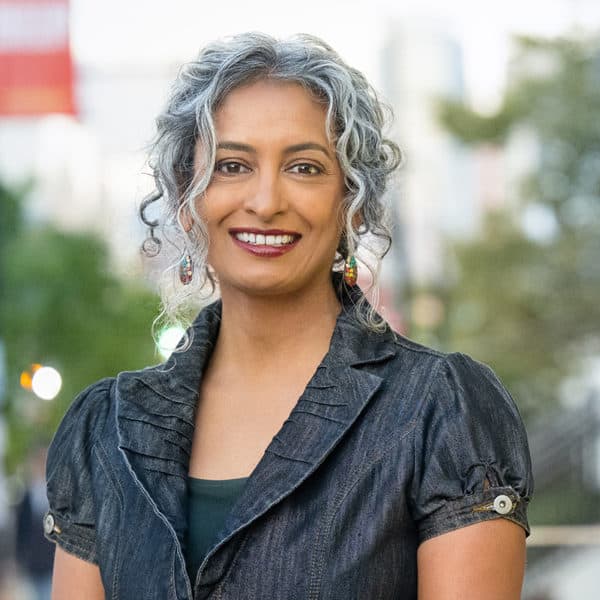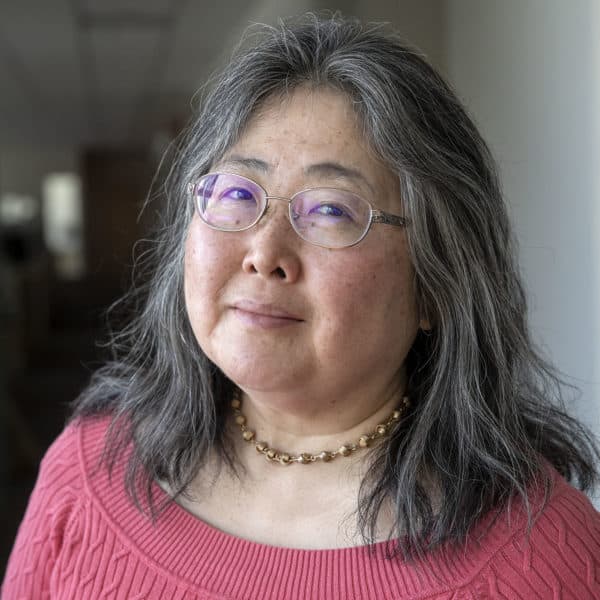Anzeige
Catching up with Grammy-winning global superstar Angélique Kidjo
Resume
Angélique Kidjo began singing when she was just 6 years old. Now, she has almost six decades of music industry success under her belt.
She was born and raised in Benin in West Africa, but escaped the dictatorial regime there and landed in France in her 30s.
“I never thought I was going to be where I am today,” Kidjo says. “But what I knew deep down in my soul is that I know where I come from.”
Her music transcends genres and she’s worked with artists including Quincy Jones and Talking Heads. And earlier this month, she played the San Jose Jazz Festival. In Kidjo’s cover of Talking Heads’ “Once in a Lifetime,” she infuses the song with joy despite its pessimistic lyrics.
“Joy is a state of mind,” she says. “And the first time I heard ‘Once in a Lifetime,’ I cried afterward because it reminded me of my childhood.”
7 questions with Angélique Kidjo
How do you describe your own music?
“I can't describe my own music. I just do what I love to do, and I just follow my inspiration and want to embark on this musical journey.
“I might not know where I'm going, but the culture I grew up in have allowed me to accept and to learn and to digest so many different types of music. For me, it was the food of my soul. Music has brought me to see the world in its entirety.”
You've been away from Benin most of your life. Does the sound of the drums from there that you use in your song still have its power?
“Yes, it does. It does because, I mean, when I left the communist dictatorship, it had been very hard for me to even hear about how my mom and dad were doing six years without being able to speak to them on the phone or to see them. And as soon as that regime was gone, I went back home and I was in awe.
“I rediscovered the sound of the drums in my country differently because they gave me comfort when I was gone and the power was still there when I came back. And it really emphasized in me that when you come from somewhere and you're a part of your culture, you can go and meet any music and you can challenge yourself to fit in any form of music. So, they were still there and they are still gonna be always there.”
What was it like making your recent single ‘Sunlight to My Soul’ with the Soweto Gospel Choir?
“That song was the story of my meeting Diane Warren, the songwriter, American songwriter — that said to me when I walked into a studio, ‘Angélique, I have a song for you.’
“I listened and I'm like, ‘How do you know that this is one of the things that I can carry? I can sing. I can live with?’ It went straight to my heart. But then I told her, ‘I need to bring this to my continent. I need to get the choir.’
“The traditional music that we do is a community gathering. It's a reminder of the social linkage. So I'm like, this joy is sunlight to my soul. I need to amplify that with the Soweto Gospel Choir. And I want everybody to sing sunlight to their soul because there's light in everybody. No one is born bad. We just need to heal the divine and see the sunlight in each other's souls.”
How do you reflect on your childhood self that fled Benin?
“I can say that I'm traumatized by it because since I was 12 until I left the country, my whole life has changed. The home of my parents was a free speech zone. Everybody was welcome to speak, and that was taken away from me. So I struggle to find meaning to any political party that will take away your freedom of speech.
“Still today, I'm talking to you, thinking about it, my heart starts pounding because it is so quick. It happens so quick. That we'd be having conversation, laughing about this, [saying], ‘Never going to happen to me.’ It can't happen to you.”
As you were building your career, did you encounter any Western expectations or stereotypes about African artists?
“It never stops, but things are changing. The new generation of African artists that are coming out today, they are not going through what I go through.
“For me, I learned from my career to let you have the opinion. Me, I do what I love to do and I do it with my heart and that, no one can take it away from me.”
Do you still encounter racism despite all you’ve achieved?
“Oh yeah. You know, racism [has] no social boundary, don't have anything to do with celebrity or nothing. People that are racist are racist.
“They don't see what you achieve because if you can just take a pose and see what you achieve as a person, then they cannot fit that into the vision of racism, xenophobia and anti-Semitism.
What’s next for you?
“I'm preparing my next album that is due February next year. I won't say too much. My mom passed away three years ago on June 26.
“I want to celebrate her joy and her legacy, and her lessons, her proverbs. My mom always used to say to us, ‘Kindness is a bulletproof vest.’”
Emiko Tamagawa produced and edited this interview for broadcast with Todd Mundt. Grace Griffin adapted it for the web.
This segment aired on August 29, 2024.


